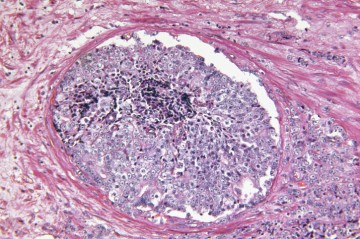Health Articles
A procedure that some men with early stage prostate cancer may consider is cryotherapy. Also known as cryosurgery or cryoblation, this procedure is not commonly used in treating prostate cancer but it can be an alternative method men may want to consider depending on different circumstances.
What is cryotherapy?
Cryotherapy is a minimally invasive surgical procedure using very cold gas to freeze and destroy prostate cancer cells. The goal is to destroy the entire prostate gland reducing the chance of any cancer from coming back.
What determines if cryotherapy is recommended?
The procedure is not used often but may be recommended in the following situations:
- If the prostate cancer is in an early stage
- Men who have prostate cancer that is confined to the prostate and has not spread
- Men with other health issues such as diabetes, heart disease or lung disease who may not be a good candidate for surgery
- Men who have already had radiation therapy and whose prostate cancer has returned
How is it done?
Even though it is also called cryosurgery, it is actually not a type of surgery. A man who will be undergoing cryotherapy will either be sedated to make him drowsy with a numbing medicine placed on the perineum or a man can have spinal anesthesia where he is drowsy but awake, and numb below the waist. A man can also be placed under general anesthesia where he is fully asleep and pain free.
During the procedure a urologist will make small cuts to place several hollow needles into the perineum which is between the anus and scrotum. An ultrasound will be used to guide the needles to the prostate gland. Then very cold gas is injected into the needles to freeze and destroy the prostate gland. The ultrasound helps to identify the cancerous tissues within the prostate gland while limiting any damage to healthy prostate tissue.
Since the procedure involves extremely cold temperature, there will be a warm saline solution that is inserted into the catheter during the procedure to protect the urethra from freezing.
The entire procedure takes about 2 hours and is done as an outpatient procedure. Some men may need to stay overnight in the hospital but many men leave the same day.
Advantages of using cryotherapy
- It is less invasive than surgery
- Less blood loss
- Shorter hospital stay
- Shorter recovery time
- Less pain
Possible side effects of cryotherapy
- Tends to be worse if done in men who have already had radiation therapy as opposed to men who have it as the first form of treatment
- There most likely will be some blood in the urine in the first day or two
- Soreness in the area where the needles were placed
- Swelling of the penis or scrotum
- Freezing might affect the bladder and rectum leading to pain, a burning sensation and the feeling of needing to empty the bladder and bowel often. This will recover over time.
- Erectile dysfunction is more common after cryotherapy than after radical prostatectomy because the freezing may damage the nerves near the prostate than control erections.
- Men who have already had radiation therapy may experience more urinary incontinence
- A fistula (an abnormal connection between organs) may develop between the rectum and bladder but less than 1% of men have this happen. If it were to occur, it often requires surgery to repair it.

